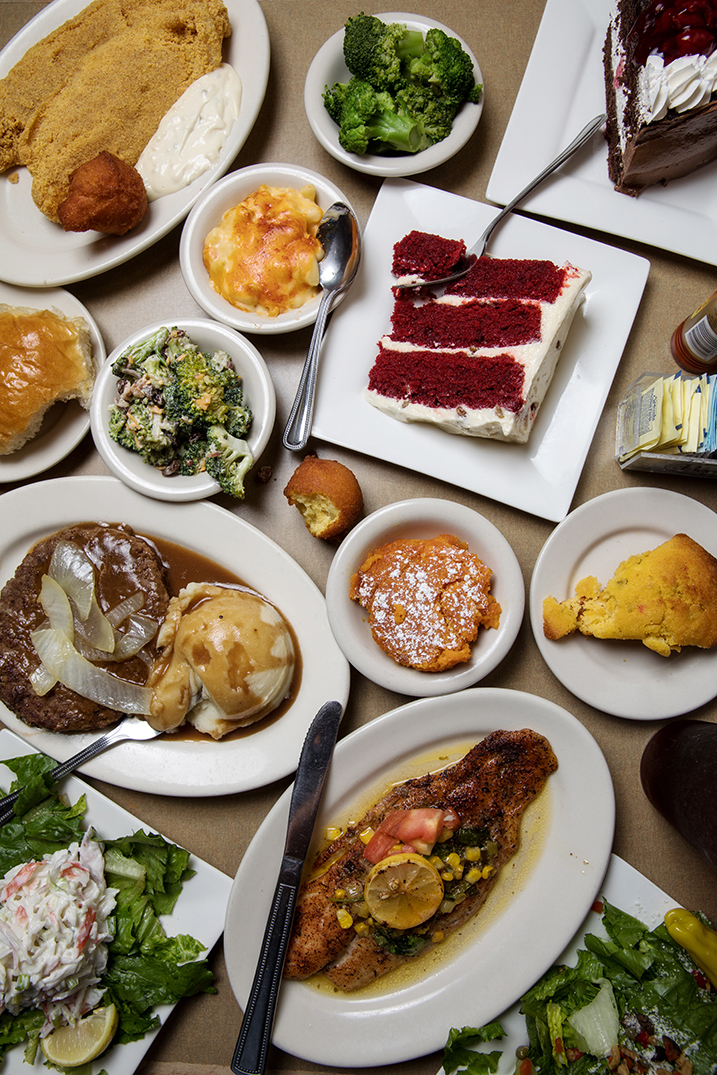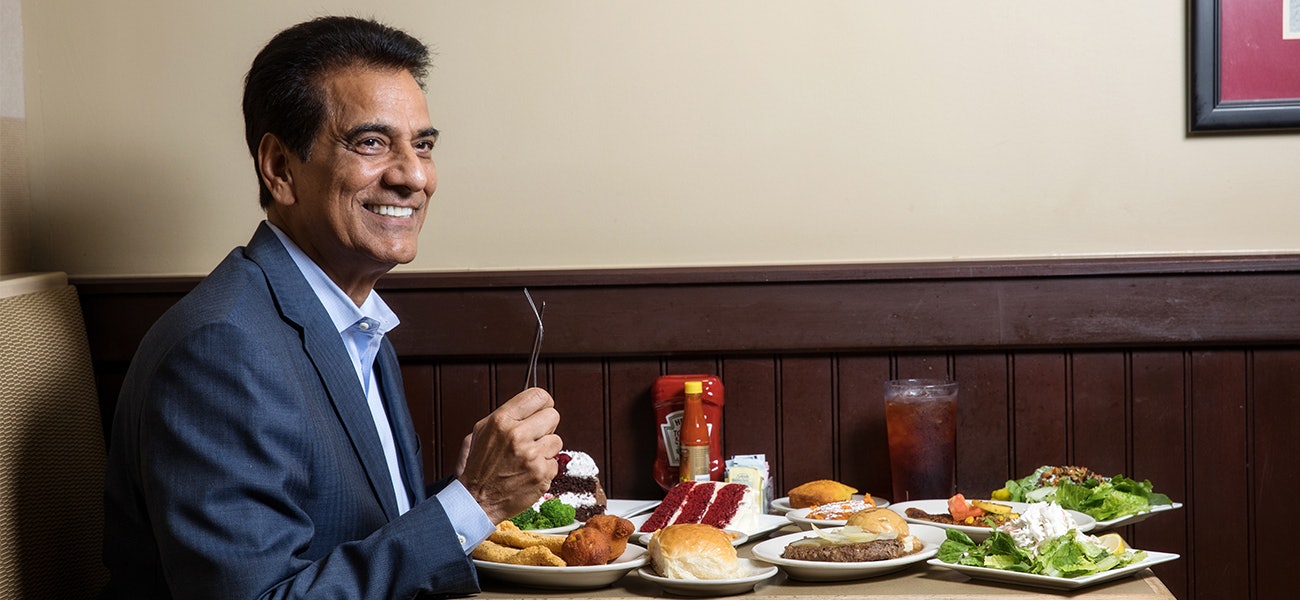Walk through the doors of a Piccadilly Cafeteria, and you know the drill. First, you’ll make a beeline for the stack of tan trays waiting at the start of the buffet. As you wait to order, you’ll contemplate the sensory overload of food: fried catfish, roast beef, carrot soufflé and those perfectly shaped dinner rolls.
This is the all-too-familiar scene at any Piccadilly—and it’s been that way since the very first location opened downtown in 1932.
 Now, the chain operates 40 locations across the Southeast. Notable changes to the company’s offerings are on the way, including a standalone to-go concept on Lee Drive. Sitting in one of the restaurants today, CEO Azam Malik reflects on what makes Baton Rouge the chain’s strongest market.
Now, the chain operates 40 locations across the Southeast. Notable changes to the company’s offerings are on the way, including a standalone to-go concept on Lee Drive. Sitting in one of the restaurants today, CEO Azam Malik reflects on what makes Baton Rouge the chain’s strongest market.








